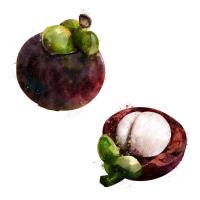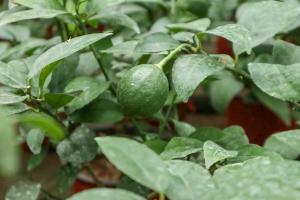Does a Plant Grow Bigger with Water or Milk?
When it comes to plant growth, water is often considered the standard for providing plants with the necessary hydration to thrive. However, there is some speculation that milk may also be a viable option for promoting plant growth. In this article, we will examine the benefits of both water and milk for plant growth to determine which is the better option.
Water and Plant Growth
Water is a vital component for plant growth as it helps facilitate the transportation of essential nutrients from the soil to the plant's leaves, stems, and roots. Furthermore, water helps maintain the plant's turgor pressure, which is essential for the plant to maintain its structure and shape. Without enough water, plants can wilt, become dehydrated, and eventually die.
In addition to its essential role in hydration, water also plays a crucial role in photosynthesis. During photosynthesis, plants convert light energy into chemical energy, which is stored in the form of sugars. Without adequate water supply, the plant's ability to photosynthesize and produce energy is compromised.
Thus, watering plants regularly is crucial for promoting their growth and ensuring that they can carry out essential biological functions efficiently.
Milk and Plant Growth
While milk is not typically considered as a viable option for plant growth, some people believe that it can help boost plant growth. Milk contains a range of nutrients, such as calcium, potassium, and magnesium, that are essential for plant growth. Some people even suggest that the lactic acid in milk can help increase soil microbial activity, leading to improved soil quality.
However, there is limited scientific evidence to support these claims. While milk may provide some nutrients for plants, it is still not a replacement for water, which is the primary source of hydration for plants. Additionally, if milk is not properly diluted, it can lead to an excess of nutrients that can harm plants, ultimately hindering their growth rather than promoting it.
Which is the Better Option?
Based on scientific evidence, it is clear that water is the better option for promoting plant growth. While milk may provide some nutrients for plants, it should not be considered as a replacement for water. Rather, water should be the primary source of hydration and nutrition for plants, and additional nutrients can be provided through fertilizers and organic matter.
Furthermore, using milk as a fertilizer can lead to negative consequences for the environment. Milk contains high levels of nitrogen, which can contribute to water pollution when it is not properly managed. Therefore, it is essential to be mindful of how we manage our waste products and use resources sustainably.
Conclusion
While there is speculation that milk may be a viable option for promoting plant growth, it is clear that water is the better option. Water is essential for hydrating plants, facilitating nutrient uptake, and promoting photosynthesis. While milk may provide some additional nutrients, it should not be used as a replacement for water, and careful consideration should be given to how we manage our waste products and resources to ensure a sustainable future.

 how many times do yo...
how many times do yo... how many planted tre...
how many planted tre... how many pine trees ...
how many pine trees ... how many pecan trees...
how many pecan trees... how many plants comp...
how many plants comp... how many plants can ...
how many plants can ... how many plants and ...
how many plants and ... how many pepper plan...
how many pepper plan...





























